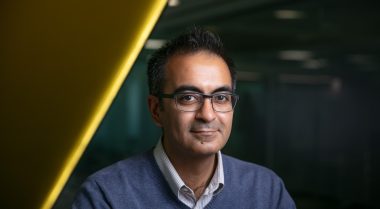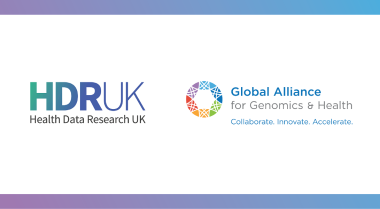New insights to tackle major global health data research challenges
24 April 2024 | Author: Debs Mathisen, Research Communications Manager
An analysis of the challenges faced by researchers during the International COVID-19 Data Alliance (ICODA) programme has shed new light on solutions that could accelerate global health data research.
At the height of the pandemic, Health Data Research UK (HDR UK) convened ICODA, bringing together an international alliance of partners to enable researchers worldwide – particularly in low- and middle-income countries – to harness the power of health data. The initiative was supported by the Bill & Melinda Gates Foundation, Minderoo Foundation and Microsoft’s AI for Good Research Laboratory.
The ICODA programme supported 135 researchers from 19 countries to access and analyse a broad range of health-related data types, with ten driver projects enabling access to datasets from over 70 data partners. These projects addressed major research questions relating to the COVID-19 pandemic, such as the effectiveness of community-based vaccination programmes and the effect of the pandemic on health service delivery.
Published in The Lancet Digital Health, lead researchers of the driver projects worked with the ICODA team to explore the challenges that each project faced in going through the health data research cycle and identify potential solutions. Given the urgent health needs presented by the COVID-19 pandemic, speed was vital in the delivery of these projects and all were set up to deliver insights within a short timeframe of 12 to 18 months.
Key challenges included the time required to prepare the data, getting data-sharing agreements signed across differing national legal frameworks, and ensuring the data was shared across borders in a secure, ethical and trustworthy manner.
Working with the ICODA team, the research teams found innovative solutions to address these challenges, including the use of standardised data sharing agreements, a structured ethics and governance framework, and the provision of a cloud-hosted trusted research environment to provide a secure space for undertaking collaborative research. The teams also used innovative approaches to engage and involve local communities and policymakers, helping build trust and the uptake of research insights to inform health policies and practices.
Professor Andrew Morris, Director of HDR UK and a co-author on the paper, said: “HDR UK were privileged to bring together an international alliance of partners to enable researchers in 19 countries to access and use health data to generate rapid insights and address key questions relating to the COVID-19 pandemic.
“I am very grateful to all the partners and research teams involved in ICODA for sharing their insights and learnings, and hope these enable researchers across the international community to use data science approaches to address a wider range of global health challenges.”
Kim Carter, former Senior Manager of Data and Insights at the Minderoo Foundation, one of the initiative’s funders said: “Alongside the fantastic research driver projects, we were keen for the equally valuable wealth of data and learnings the ICODA team has accumulated, on how to overcome the barriers and pain points to rapid scientific collaboration and open data sharing, to be widely shared.
“ICODA has generated a positive legacy from the COVID-19 crisis, cementing the next generation of sophisticated, collaborative research efforts to accelerate medical science.”
Building on the ICODA programme, HDR UK has now convened the HDR Global programme which seeks to enable trustworthy data access, re-use and analysis in regions, communities and disease areas, where evidence to tackle threats to public health is lacking.



